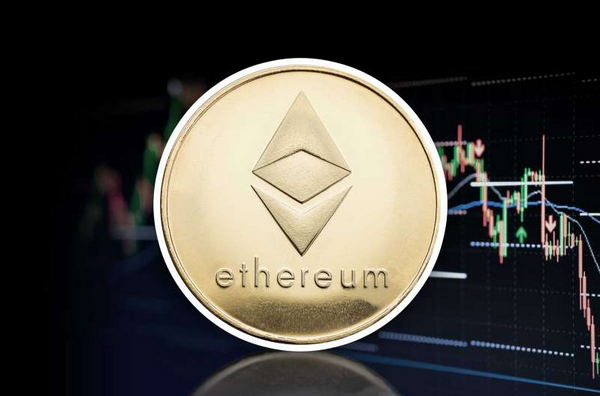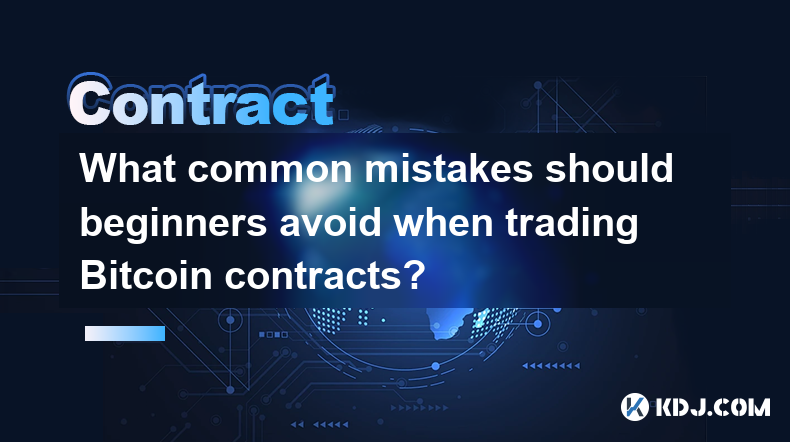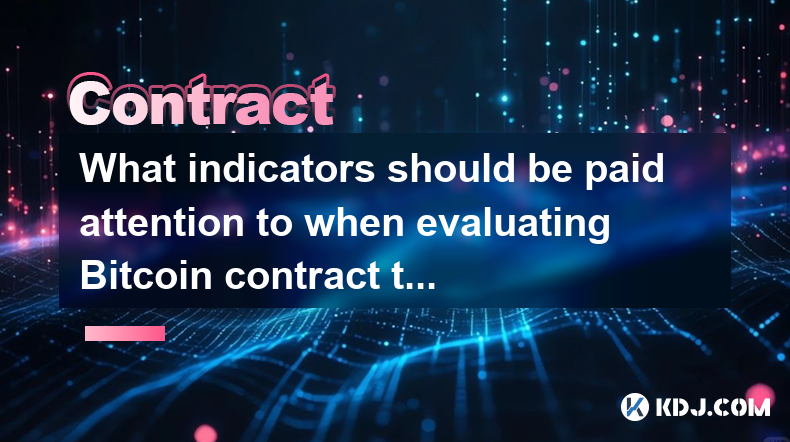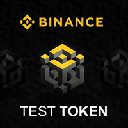-
 Bitcoin
Bitcoin $96,453.1917
0.14% -
 Ethereum
Ethereum $2,762.2415
2.98% -
 XRP
XRP $2.5550
-1.52% -
 Tether USDt
Tether USDt $1.0002
0.03% -
 BNB
BNB $666.6500
2.44% -
 Solana
Solana $171.0093
-0.63% -
 USDC
USDC $1.0001
0.00% -
 Dogecoin
Dogecoin $0.2450
0.63% -
 Cardano
Cardano $0.7733
-0.29% -
 TRON
TRON $0.2383
-0.36% -
 Chainlink
Chainlink $17.7324
0.66% -
 Avalanche
Avalanche $25.6812
2.10% -
 Sui
Sui $3.4386
2.28% -
 Stellar
Stellar $0.3318
0.92% -
 Litecoin
Litecoin $126.8191
-2.19% -
 Toncoin
Toncoin $3.7638
4.77% -
 Shiba Inu
Shiba Inu $0.0...01556
2.41% -
 Hedera
Hedera $0.2147
-1.82% -
 UNUS SED LEO
UNUS SED LEO $9.7016
-0.28% -
 MANTRA
MANTRA $8.9910
20.19% -
 Hyperliquid
Hyperliquid $24.2671
-2.95% -
 Polkadot
Polkadot $5.0680
-1.95% -
 Bitcoin Cash
Bitcoin Cash $321.4985
1.43% -
 Bitget Token
Bitget Token $4.9827
1.83% -
 Ethena USDe
Ethena USDe $0.9997
0.18% -
 Uniswap
Uniswap $9.0289
1.93% -
 Dai
Dai $1.0002
0.02% -
 Monero
Monero $235.1303
1.37% -
 NEAR Protocol
NEAR Protocol $3.4724
2.46% -
 Pepe
Pepe $0.0...09532
3.22%
What is Ethereum smart contract
Ethereum smart contracts, autonomous and immutable programs stored on the blockchain, revolutionize trust, negotiation, and automation in various blockchain applications, from DeFi to supply chain management.
Nov 09, 2024 at 02:59 am

Ethereum Smart Contracts: A Comprehensive Guide
Ethereum smart contracts are self-executing programs stored on the Ethereum blockchain. They are autonomous, transparent, and immutable. Designed to reduce trust and simplify negotiations, smart contracts play a pivotal role in various blockchain applications.
Key Features of Ethereum Smart Contracts:
- Autonomous Execution: Smart contracts are autonomous programs that execute automatically when predefined conditions are met. This eliminates the need for manual intervention and reduces the risk of human error.
- Transparency: All smart contract code is open and auditable. This promotes trust and transparency among participants.
- Immutability: Once deployed on the blockchain, smart contracts cannot be altered or removed. This ensures the integrity and security of the contract's execution.
Working Mechanism of Ethereum Smart Contracts
- Contract Creation: A smart contract is designed and coded in Solidity, a programming language specifically developed for Ethereum. It then goes through a compilation process to convert Solidity code into EVM bytecode understandable by the Ethereum Virtual Machine (EVM).
- Deployment: The compiled contract is deployed onto the Ethereum network, and a unique address is generated for it. This address serves as the contract's public identifier on the blockchain.
- Initialization: The deployment transaction typically includes an initialization function that sets up initial contract parameters and states. This function is executed only once during the contract's lifetime.
- Transaction Execution: Parties interact with smart contracts by sending transactions to their addresses. These transactions trigger the execution of functions defined within the contract code.
- State Update: If the transaction meets the conditions specified in the contract code, the contract's state may be updated. The new state is recorded on the blockchain and becomes accessible to all participants.
Benefits of Using Ethereum Smart Contracts
- Automation: Smart contracts automate various processes, reducing the need for intermediaries and manual effort. This saves time, costs, and reduces the risk of errors.
- Transparency and Trust: The open and auditable nature of smart contracts builds trust among parties, since all actions are recorded on the blockchain and visible to all.
- Enhanced Security: Smart contracts operate on the secure Ethereum blockchain, leveraging its decentralized architecture and consensus mechanisms to ensure data integrity and prevent unauthorized modifications.
- Reduced Costs: By eliminating the need for intermediaries and simplifying business processes, smart contracts can significantly reduce transaction and operating expenses.
- New Application Possibilities: Smart contracts enable the creation of innovative applications that were previously impossible or impractical with traditional systems. This opens up new possibilities for business models and industry transformations.
Common Use Cases of Ethereum Smart Contracts
- Digital Agreements: Smart contracts can be used to create legally binding agreements, such as contracts for sale, insurance policies, or loan agreements. These contracts execute automatically based on pre-defined terms, reducing the need for complex legal documentation.
- Decentralized Finance (DeFi): Smart contracts are the foundation of DeFi, allowing for the creation of decentralized financial instruments and services, such as lending, borrowing, stablecoins, and decentralized exchanges.
- Supply Chain Management: Smart contracts can track the provenance and movement of goods through supply chains, ensuring transparency and accountability. They can also automate payments, streamline logistics, and reduce fraud.
- Voting and Elections: Smart contracts can facilitate secure and transparent voting systems, allowing for the casting and counting of votes on the blockchain. This reduces the risk of election fraud and eliminates the need for centralized authorities.
- Gaming and Entertainment: Smart contracts can be used in gaming applications to manage in-game assets, distribute rewards, and enforce game rules. In the entertainment industry, smart contracts can automate royalty payments and provide new ways for content creators to monetize their work.
Top Smart Contract Development Platforms (Excluding FTX)
- Ethereum: Ethereum is the leading platform for smart contract development, with a vast ecosystem of tools, resources, and an active community.
- Binance Smart Chain (BSC): BSC offers a high-throughput alternative to Ethereum, with faster transaction speeds and lower gas fees.
- Solana: Solana is a high-performance blockchain that supports smart contracts with unparalleled scalability and low transaction costs.
- Polygon: Polygon is a layer-2 scaling solution for Ethereum, providing faster transactions and lower gas fees, while maintaining interoperability with the Ethereum ecosystem.
- Avalanche: Avalanche is another high-throughput blockchain that offers fast and low-cost transactions for smart contract applications.
Considerations for Developing Smart Contracts
- Security: Smart contracts should be thoroughly audited and tested to ensure they are secure against vulnerabilities and exploits.
- Cost Optimization: Developers should optimize smart contract code to minimize gas consumption and reduce transaction fees.
- Maintenance and Upgrades: Smart contracts should be designed with future maintenance and upgrades in mind, as code changes on the blockchain can be complex and costly.
- Legal and Regulatory Compliance: It is essential to consider the legal and regulatory implications of smart contracts, particularly in jurisdictions where digital agreements may not yet have clear legal standing.
- User Experience: Smart contract user interfaces and interactions should be designed with user-friendliness and simplicity in mind, ensuring a seamless and accessible experience for all participants.
Disclaimer:info@kdj.com
The information provided is not trading advice. kdj.com does not assume any responsibility for any investments made based on the information provided in this article. Cryptocurrencies are highly volatile and it is highly recommended that you invest with caution after thorough research!
If you believe that the content used on this website infringes your copyright, please contact us immediately (info@kdj.com) and we will delete it promptly.
- 2024 Crypto Report: Bitcoin Stable, Ethereum Declines, Niche Tokens Rally
- 2025-02-23 10:05:26
- NoLimitCoins Casino Promo Code NLSFA: Claim 1.35M GC and 6,100 SC in February 2025
- 2025-02-23 09:45:26
- Bitcoin (BTC) Struggles to Break Above $98K, Faces Resistance at Key Trendline
- 2025-02-23 09:45:26
- DOGE Millionaires Eyeing DTX Exchange: The Future of Crypto
- 2025-02-23 09:25:25
- Bybit CEO Ben Zhou said that the exchange will try all available means to get the stolen funds back
- 2025-02-23 09:25:25
- How to Make Money on Binance by Writing, Making Videos, and Referring Friends
- 2025-02-23 09:25:25
Related knowledge

What common mistakes should beginners avoid when trading Bitcoin contracts?
Feb 22,2025 at 01:42pm
Key Points:The potential risks and rewards of Bitcoin contractsUnderstanding leverage and its impact on tradingAvoiding emotional trading and sticking to a planManaging risk through proper hedgingStaying informed about market news and trendsSeeking guidance from experienced traders or certified professionalsPracticing on demo accounts before trading wit...

How is the data on holdings of large investors helpful in judging the market trend of Bitcoin contracts?
Feb 22,2025 at 08:37pm
Key PointsProvide insights into market sentiment: Large investors' buying and selling activities can indicate market sentiment and future price movements.Identify potential market reversals: Changes in holdings can signal potential trend reversals, allowing traders to adjust their positions accordingly.Quantify market liquidity: High levels of large inv...

How to interpret the long-short-ratio data in Bitcoin contract trading?
Feb 22,2025 at 03:48am
Key Points:Understanding the Long-Short RatioInterpreting Long-Short Ratio DataTrading Strategies Based on Long-Short Ratio AnalysisCommon Mistakes in Using Long-Short Ratio DataFAQsUnderstanding the Long-Short RatioThe Long-Short Ratio (LSR) is a metric that measures the relative number of traders who have placed long (buy) positions compared to those ...

How to effectively use technical indicators to trade Bitcoin contracts?
Feb 23,2025 at 02:30am
Key Points:Understanding Cryptocurrency ChartsIdentifying Bullish and Bearish SignalsUtilizing Moving Averages for Trend IdentificationIncorporating MACD and RSI for Momentum AnalysisContextualizing Technical IndicatorsContent:1. Understanding Cryptocurrency ChartsFamiliarize yourself with candlestick charts, which provide a visual representation of pri...

What indicators should be paid attention to when evaluating Bitcoin contract trading strategies?
Feb 21,2025 at 08:36pm
Key Points:Understand the Different Types of Bitcoin Contract Trading StrategiesEvaluate Risk Tolerance and Trading GoalsAnalyze Market Conditions and Volatility TrendsStudy Technical Indicators and Chart PatternsAssess the Effectiveness of Historical StrategiesEvaluating Bitcoin Contract Trading Strategies: A Comprehensive GuideUnderstanding Trading St...

What are the advantages and challenges of using API for Bitcoin contract trading?
Feb 23,2025 at 08:49am
Key Points:Automated trading and executionReal-time data access and market monitoringRisk and portfolio managementAccess to advanced trading strategiesPotential for increased returnsAdvantages of Using API for Bitcoin Contract Trading:Automated Trading and Execution: APIs allow traders to automate trading decisions and execute trades instantly, eliminat...

What common mistakes should beginners avoid when trading Bitcoin contracts?
Feb 22,2025 at 01:42pm
Key Points:The potential risks and rewards of Bitcoin contractsUnderstanding leverage and its impact on tradingAvoiding emotional trading and sticking to a planManaging risk through proper hedgingStaying informed about market news and trendsSeeking guidance from experienced traders or certified professionalsPracticing on demo accounts before trading wit...

How is the data on holdings of large investors helpful in judging the market trend of Bitcoin contracts?
Feb 22,2025 at 08:37pm
Key PointsProvide insights into market sentiment: Large investors' buying and selling activities can indicate market sentiment and future price movements.Identify potential market reversals: Changes in holdings can signal potential trend reversals, allowing traders to adjust their positions accordingly.Quantify market liquidity: High levels of large inv...

How to interpret the long-short-ratio data in Bitcoin contract trading?
Feb 22,2025 at 03:48am
Key Points:Understanding the Long-Short RatioInterpreting Long-Short Ratio DataTrading Strategies Based on Long-Short Ratio AnalysisCommon Mistakes in Using Long-Short Ratio DataFAQsUnderstanding the Long-Short RatioThe Long-Short Ratio (LSR) is a metric that measures the relative number of traders who have placed long (buy) positions compared to those ...

How to effectively use technical indicators to trade Bitcoin contracts?
Feb 23,2025 at 02:30am
Key Points:Understanding Cryptocurrency ChartsIdentifying Bullish and Bearish SignalsUtilizing Moving Averages for Trend IdentificationIncorporating MACD and RSI for Momentum AnalysisContextualizing Technical IndicatorsContent:1. Understanding Cryptocurrency ChartsFamiliarize yourself with candlestick charts, which provide a visual representation of pri...

What indicators should be paid attention to when evaluating Bitcoin contract trading strategies?
Feb 21,2025 at 08:36pm
Key Points:Understand the Different Types of Bitcoin Contract Trading StrategiesEvaluate Risk Tolerance and Trading GoalsAnalyze Market Conditions and Volatility TrendsStudy Technical Indicators and Chart PatternsAssess the Effectiveness of Historical StrategiesEvaluating Bitcoin Contract Trading Strategies: A Comprehensive GuideUnderstanding Trading St...

What are the advantages and challenges of using API for Bitcoin contract trading?
Feb 23,2025 at 08:49am
Key Points:Automated trading and executionReal-time data access and market monitoringRisk and portfolio managementAccess to advanced trading strategiesPotential for increased returnsAdvantages of Using API for Bitcoin Contract Trading:Automated Trading and Execution: APIs allow traders to automate trading decisions and execute trades instantly, eliminat...
See all articles

















































































